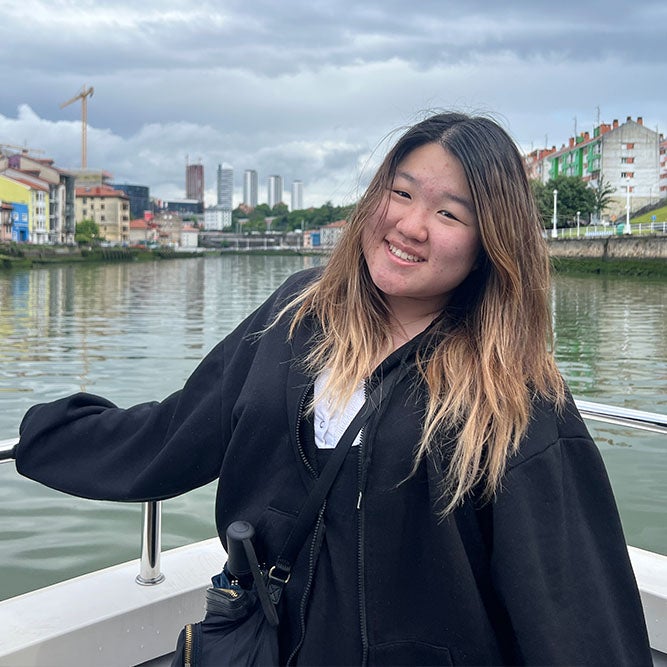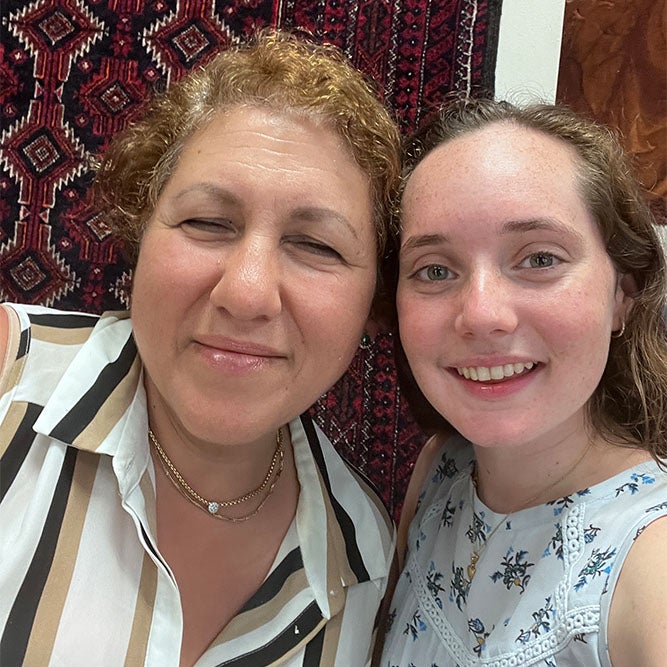Redefining Global Citizenship
By Sophie Kidd
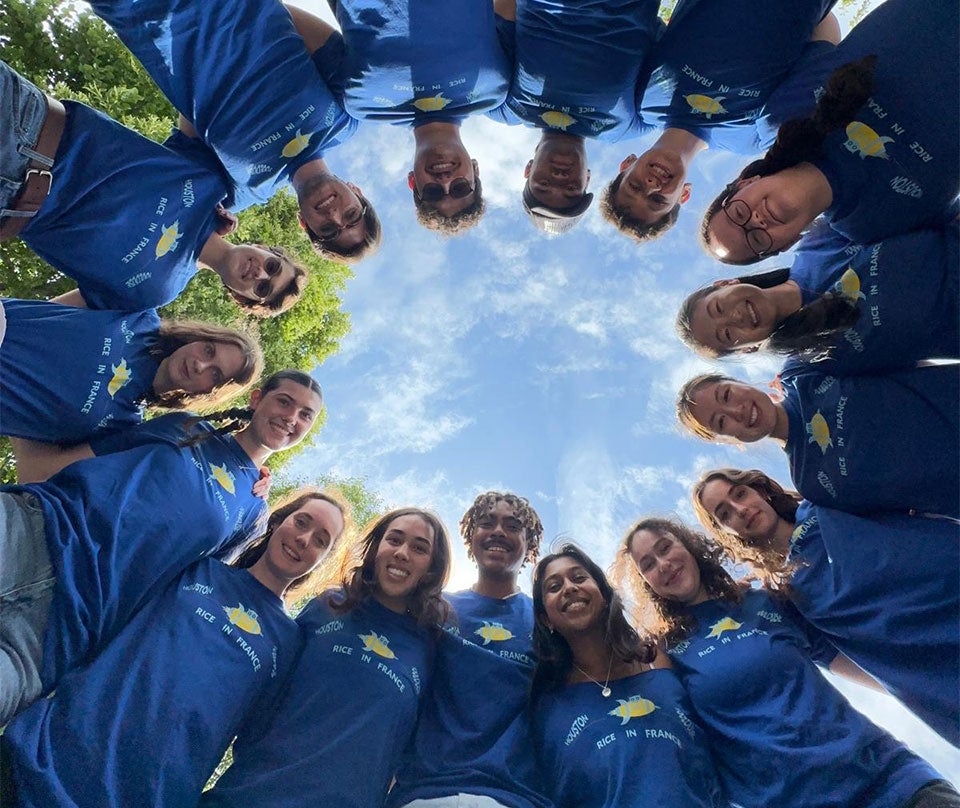
“Being a global citizen doesn’t just mean traveling abroad,” explained Hélade Scutti Santos, teaching professor of Spanish and Portuguese and director of Rice’s Center for Languages and Intercultural Communication (CLIC). “It means expanding your perspective through genuine exposure to other languages, cultures and ways of life. It’s about seeing your identity reflected in others — and rethinking what you thought you knew.”
That philosophy is at the heart of Rice in Country, a School of Humanities program supported by the Elizabeth Lee Moody International Fund in the Humanities and Art, which sends students abroad to live with host families, take classes at local institutions and engage directly with the communities around them. What began 10 years ago as a faculty-led initiative to deepen language instruction has evolved into a transformative experience that bridges cultures and reshapes futures. “Students come back with a deeper understanding of themselves and the world around them,” she said. “But the biggest challenge is access.”
Even when tuition is covered, additional costs — airfare, meals or lost income from summer jobs — can be prohibitive. “Some students support their families during the summer. Others just can’t afford to travel,” Hélade explained. “That’s where travel stipends and scholarships come in. They can make all the difference.”
With rising student interest, Hélade hopes to expand funding to ensure that every student who wants to participate can have a life-changing experience. “We’re lucky to have generous donors and endowments, but demand always outpaces what we have.”
Scroll Down to Read More or Jump to the Stories Below
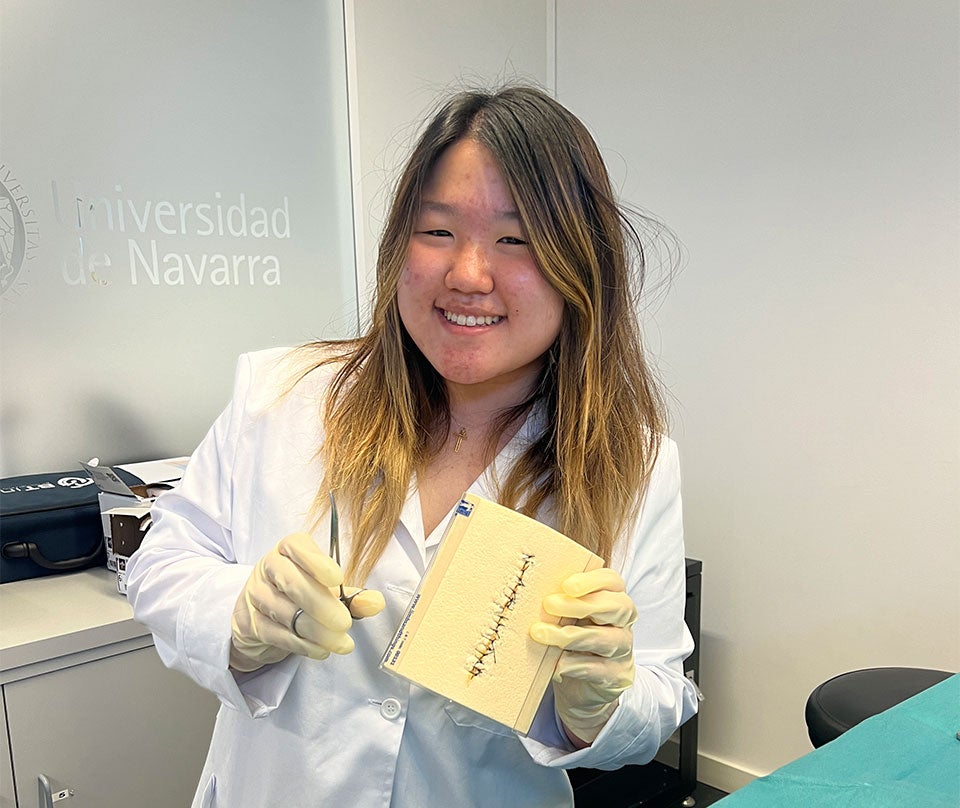
For Phoebe Yoon ’27, global citizenship is deeply personal. Inspired by her mother’s battle with and recovery from cancer, Phoebe was determined to pursue a career in medicine. A summer volunteering in underserved communities in Nicaragua inspired her interest in global health, and when she arrived on campus, she declared as a biosciences major and got involved in cell research, with the goal of becoming a pediatric oncologist. It wasn't long before she learned about the Rice in Spain program, a unique opportunity to combine her passions for medicine and language.
“I was drawn to the idea of using my language skills in a real clinical setting,” she said, “and I knew that this was something that I could not miss out on.”
With the help of financial aid, Phoebe was able to take advantage of this incredible experience. “CLIC covered half the cost, and Rice provided the rest through scholarships and a travel stipend for Pell Grant recipients like me. Not only did that support make it possible for me to go to Spain, but it also relieved so much pressure and allowed me to really focus on learning.”
Led by Rice faculty and coordinated in partnership with local health organizations in Pamplona, the program placed Phoebe and other students in community clinics where they shadowed doctors, practiced bed-side manner, learned how to perform small procedures and discussed public health systems in classroom seminars — all conducted in Spanish. Students also lived with host families and took language classes at a local university.

“Going there, my Spanish was pretty basic,” Phoebe said. “But when you’re immersed in the language, whether in lectures, at the clinic or talking to friends, you can’t help but grow. By the end, I could hold full conversations, even about health care topics.”
Reflecting on her experience, Phoebe said that her time in Spain changed her view of health care — and her own role in it. “In Spain, there’s this sense that everyone looks out for each other, like one big family. That really affected me. I started thinking more about how community shapes care and how we can bring that spirit into the U.S. health system.”
While Phoebe is still early in her medical journey, the experience has given her a clearer sense of purpose. “I hope to return to Latin America as a physician one day,” she said. “I want to use my language skills and understanding of community-based care to build trust and connection.”
She also hopes others can have similar life-changing opportunities. “A lot of students worry about the cost,” she said. “Donor support makes all the difference.”
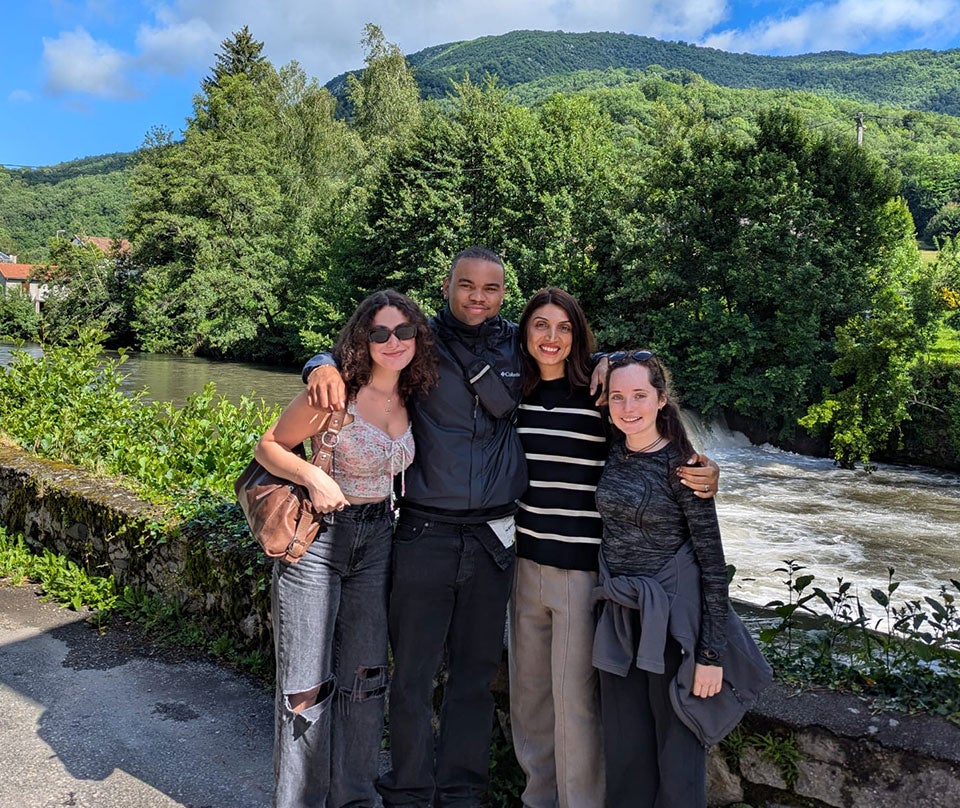
Before studying in France with Rice in Country, Paige Matthys-Pearce ’26 had never left the U.S. for an extended period of time. However, growing up in a diverse multilingual neighborhood in St. Louis, Paige developed an early love for languages and cultures — a passion she now pursues through her linguistics major at Rice.
“On the street where I grew up, there's a Hindu temple, a mosque and a Catholic church, so there's a lot of religions, cultures and languages close together. Even though my family only speaks English at home, I wanted to learn my friends’ languages,” Paige explained. “I was already fluent in French and Spanish when I got to Rice, but I wanted to go deeper and explore Arabic, Persian, Hebrew and German.”
In France, Paige spent her days immersed in language and community: playing soccer with university students, volunteering in local schools and sharing meals with her host family.
One encounter, in particular, stood out.“I wandered into a Persian rug store one day and met a woman who struck up a conversation with me,” Paige recalled. “We ended up speaking in a mix of Persian and French. She made me tea, we danced to Iranian music from her childhood, and she invited me to lunch the day before I flew home. We still keep in touch.”
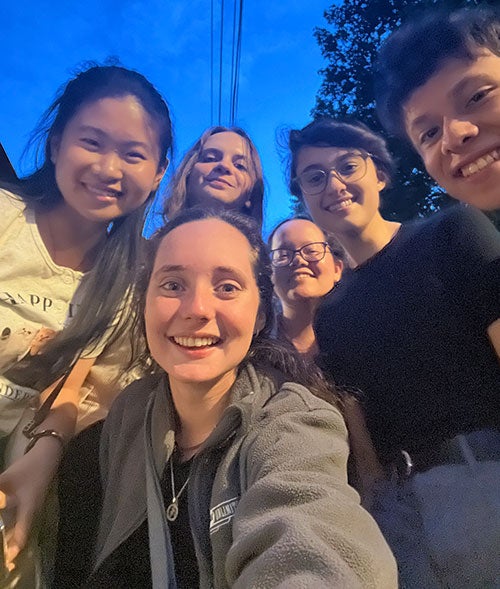
That experience changed the way Paige thinks about what it means to be part of a global community. “It’s one thing to study a culture in a classroom. But when you live it, when you share tea and stories and laughter — that’s what makes it real,” she said. “This trip deepened how I understand my role in building a stronger, kinder intercultural community and helping to better our world.”
Paige is grateful for the generous financial aid that enabled her growth. “It’s because of the financial support of donors that I can participate in Rice in Country, and even attend Rice at all,” she said. “I’m so grateful for donor support because it helps people like me learn about themselves and other cultures so we can go on to truly better our world.”
Paige is now preparing for her next journey: learning Arabic through the Rice in Jordan program this summer. “I’m nervous,” she admitted. “But I’m also excited to see how this new cultural experience will help me grow and contribute to the world community.”
Accelerate the Vision
To help make life-changing global learning experiences accessible to more Rice students, or to learn how you can support programs like Rice in Country, contact Emily Stein, senior director of development, at emily.m.stein@rice.edu or 713-348-3424.
Explore More From Our Current Issue
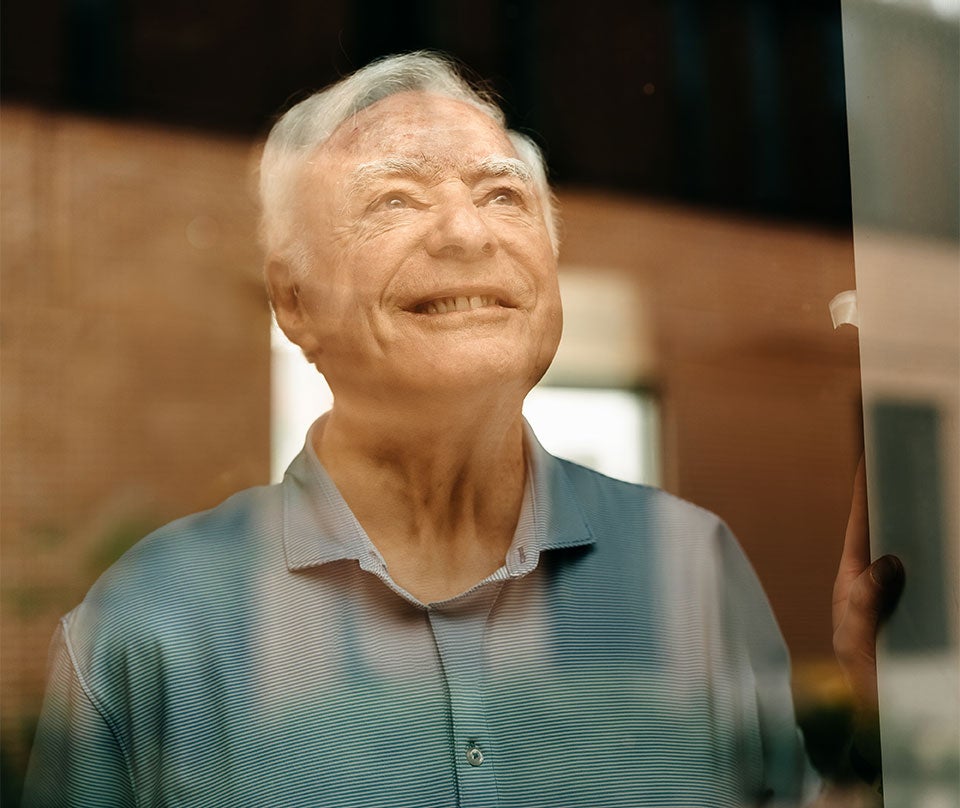
Cordell Haymon ’65 and Walter Loewenstern ’58 share what inspired 45 consecutive years of giving.
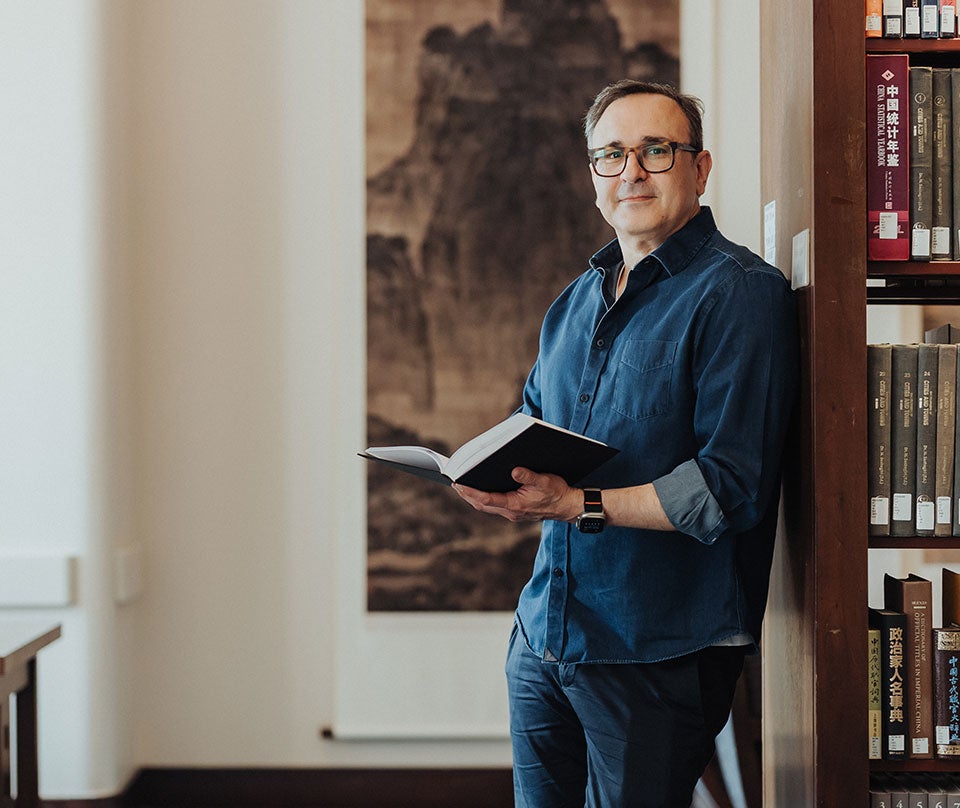
Three of Rice’s named chairs showcase why dedicated teaching and trailblazing research go hand in hand.
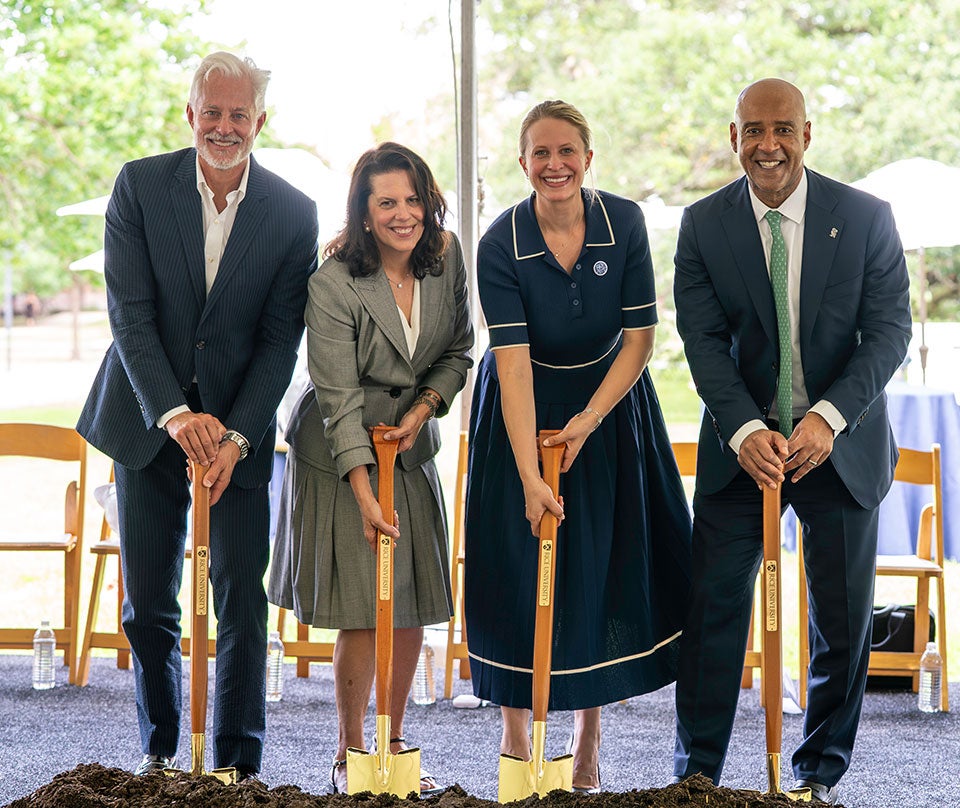
The long-anticipated space will be a new hub for student connection, engagement and growth.

